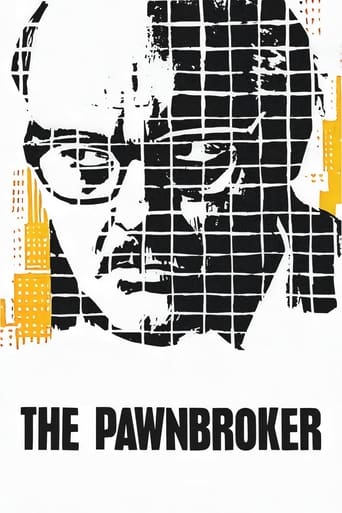¡Los más hablado a cerca de cine!
"The Pawnbroker" (1965), a poignant and groundbreaking film produced by The Pawnbroker Co. and American International Pictures, delves deep into the harrowing aftermath of the Holocaust. Directed by Sidney Lumet and set in New York City, the movie follows the life of Sol Nazerman, a Holocaust survivor portrayed with haunting intensity by Rod Steiger. Nazerman, emotionally numb and haunted by his past, runs a pawn shop in Harlem, where he interacts with a diverse array of characters struggling with their own societal and personal challenges. The film's stark portrayal of urban decay and human suffering serves as a powerful backdrop to Nazerman's internal battle with his traumatic memories. The narrative of "The Pawnbroker" is notable for its innovative use of flashbacks, which vividly depict Nazerman's experiences in a Nazi concentration camp. These sequences are interwoven with his present-day life, creating a jarring yet effective contrast that underscores the enduring impact of his trauma. The film's visual style, characterized by its use of harsh lighting and close-up shots, enhances the emotional intensity of the story, drawing viewers into Nazerman's psychological turmoil. This technique not only highlights the protagonist's detachment from the world around him but also emphasizes the film's central theme of the long-lasting effects of genocide. Beyond its technical achievements, "The Pawnbroker" stands out for its bold exploration of social issues, including poverty, racism, and the exploitation of the marginalized. The pawn shop serves as a microcosm of society, where the desperate and downtrodden come to trade their possessions for quick cash. Through these interactions, the film critiques the systemic inequalities that perpetuate cycles of poverty and despair. Additionally, "The Pawnbroker" was one of the first American films to address the Holocaust directly, breaking new ground in cinematic storytelling and paving the way for future explorations of this dark chapter in history. "The Pawnbroker" received critical acclaim upon its release, with Rod Steiger's performance earning particular praise and a nomination for the Academy Award for Best Actor. The film's unflinching portrayal of the human condition and its willingness to tackle difficult subjects made it a landmark in American cinema. Despite its initial controversy, including censorship battles over its depiction of nudity and violence, "The Pawnbroker" has endured as a powerful testament to the resilience of the human spirit and the importance of confronting the past to understand the present.
Año1965
Presupuesto500000$
Duración116 minuto
GénerosDrama
Países de producciónUnited States of America

